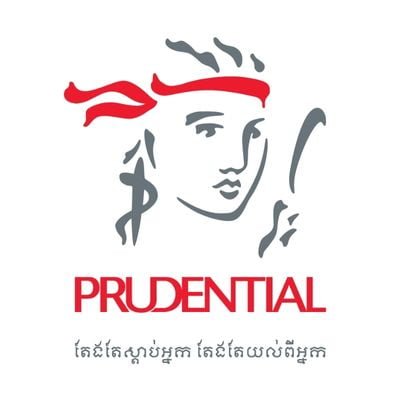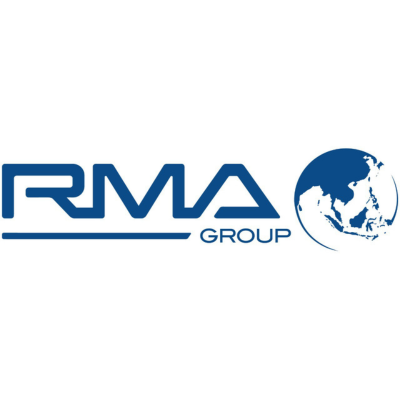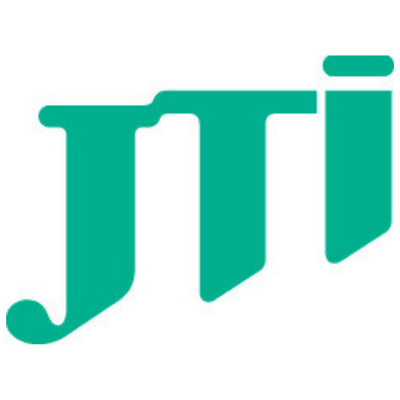The “Industry Views & Outlook 2023”, organized by the International Business Chamber of Cambodia (IBC), brought together leading experts from 12 key industries to provide updates on their sectors and share their outlook for the year 2023.
According to the International Monetary Fund, Cambodia’s real GDP growth was expected to be 5% in 2022 and nearly 5.5% in 2023, driven by the recovery of tourism and ongoing policy support.
However, the outlook was uncertain and risks such as rising private debt, conditions in key economies, and inflation may have affected the forecast. The event provided a comprehensive understanding of the current state and prospects of different industries in Cambodia, including insights from industry leaders and experts.

Banking & Finance: Sothearoath Oeur, Chief Executive Officer at Credit Bureau Cambodia
Credit Bureau of Cambodia, a leading provider of credit scoring services, is pleased to talk about its continued growth and investment in the Cambodian market. The demand for credit in Cambodia has remained stable, with an 11% increase in loan accounts and a 19% growth in outstanding loan balances. The market has seen a total of $26 billion in new loan disbursements.
The end of the COVID-19-related loan restructure facility on June 22 2022 is expected to have a positive impact on the market, with loan quality increasing but remaining manageable at a rate of 3% (30+DPD). We expect the credit market to continue growing at a rate of 15%, reaching $54 billion by the end of 2023. The credit quality is expected to stay between 2-3%.
CBC is committed to driving digital transformation in the Cambodian market. Our focus on cybersecurity will be a top priority, as we work to simplify the customer journey by improving digital experiences and expanding digital product and payment capabilities. We will also be using big data, AI, and advanced analytics to gain insights and improve our services.
We see a bright future for the Cambodian finance and banking market and are excited to be a part of it. We look forward to continuing to provide our clients with the highest quality credit scoring services, helping them make informed financial decisions.
Alcohol: Daren Ong, Managing Director at Pernod Ricard Cambodge
With the country’s strong post-COVID recovery measures attracting foreign investors and a young population, the potential for growth in the alcohol industry is substantial. The Cambodian government’s draft Alcohol Law, first introduced in 2015, is expected to move forward in the coming year, leading to more comprehensive and balanced regulations for the industry.
This includes measures aimed at promoting responsible consumption, marketing, and sales, and tackling illicit trade. Pernod Ricard Cambodge is committed to being a responsible corporate citizen, and we see the implementation of these regulations as an opportunity to drive sustainability within the industry. We will be working closely with other players in the alcohol industry, including beer, wine, and spirit producers, to promote collective efforts toward responsible consumption.
The Cambodian government’s efforts to control and enforce the illicit trade of counterfeit, smuggled, and unrecorded products are also expected to lead to an increase in government revenue.
Pernod Ricard Cambodge is committed to working with the government to ensure effective resources are in place to educate consumers on responsible consumption of alcoholic products and engage industry players to promote their product’s responsibility.
Pernod Ricard Cambodge is confident that the alcohol industry in Cambodia will bounce back to pre-COVID levels, despite some supply chain issues. However, it should be noted that compared to neighboring countries, Cambodia still lacks a comprehensive alcohol policy structure. There is no legally mandated legal purchasing age, no alcoholic beverage definition, or a drinking guideline. Irresponsible consumption of alcohol remains a huge issue.
Despite these challenges, Pernod Ricard Cambodge sees a bright future for the Cambodian alcohol market and is excited to be a part of it. We look forward to continuing to provide our customers with high-quality, responsibly produced alcoholic beverages.
Tourism: Jacques Guichandut Managing Director of All Dreams Cambodia
In recent years, Cambodia has been positioning itself as a destination for tourism, with an increasing number of people visiting the country each year. However, the COVID-19 pandemic has had a significant impact on the industry, causing a decline in international tourist arrivals. Despite this, the country is seeing a rise in domestic tourism, with an increase of 60% compared to 2019.
As the world begins to recover from the pandemic, the Cambodian government is working to support and promote ecotourism in the country. This is being done with the help of international institutions such as the World Bank and ADB, which are providing funding for the development of sustainable tourism.
Cambodia was the first country in Southeast Asia to reopen to international tourists on November 16, 2021, after having one of the best COVID-19 prevention results in the world. As of November 2022, the Ministry of Tourism reported 1.9 million international tourist arrivals, which is 67% less compared to 2019. However, it’s important to note that only 20% of these international tourists purchased a ticket to Angkor Park, which is down from 45% in 2019.
Despite these challenges, there are still opportunities for growth in the tourism industry in Cambodia. The country’s flight connectivity to the destination is improving, and prices for air tickets are beginning to decrease. Additionally, the Covid crisis is encouraging the promotion of longer stays of up to 1 or 2 weeks.
As a travel company, All Dreams Cambodia is well-positioned to take advantage of these opportunities. With a focus on ecotourism, the company can offer unique and sustainable travel experiences for visitors to the country. Additionally, the company’s experienced team can provide personalized service and support to ensure that each customer has a memorable and enjoyable trip.
In conclusion, while the tourism industry in Cambodia has been affected by the pandemic, there are still opportunities for growth in the coming months. With the government’s support for sustainable tourism and the increasing popularity of ecotourism, the industry is well-positioned to recover and grow in the future.
All Dreams Cambodia, as a travel company, is ready to capitalize on these opportunities and provide excellent service to their customer to ensure their trip to Cambodia is memorable.
Human Resources: Kevin Britten, Managing Director, Top Recruitment Cambodia
The private sector in Cambodia is facing a rapidly changing market, with opportunities arising in a number of key areas. In the next 12 months, the demand for technical and engineering professionals, as well as IT developers, is expected to remain high. This presents a significant opportunity for companies to build their employer branding and attract top talent in these fields.
One of the most significant trends in the Cambodian job market is the growth of the middle class. This is driving increased demand for sales positions, as more and more people have the disposable income to purchase consumer goods. However, despite this positive trend, the global recession has had a significant impact on the Cambodian job market.
In light of this, companies in Cambodia need to be contrarian in their approach to human resources. Engaging employees and retaining them is key to success in the current market, and companies need to be aware of the importance of building strong employer branding.
As a result of the pandemic, many companies in Cambodia have been forced to adopt hybrid working models. This has been a significant shift for many Cambodians, but it has also presented new opportunities for companies to adapt to this new way of working.
Overall, the private sector in Cambodia is facing a challenging market, but there are still significant opportunities for companies that are willing to adapt and be contrarian in their approach. Building strong employer branding and engaging employees are key to success in the current market.
Agriculture: David Totten, Head of Emerging Markets Consulting
Cambodia’s agricultural sector presents a significant opportunity for investors looking to capitalize on the country’s growth potential. In the next 12 months, businesses can focus on a variety of areas to increase their chances of success in the Cambodian market.
One area of opportunity is value-added processing, specifically in crops, aquaculture, livestock, and feed. This includes investing in inputs such as seed, fertilizer, pesticide, and mechanization and automation technologies. Additionally, there is an opportunity to improve market logistics and infrastructure, such as transportation, storage, and irrigation.
Another opportunity is the use of Information and Communication Technologies (ICT) and finance in the agricultural sector. This includes the use of intangible and moveable finance to improve the overall efficiency of supply chain management.
The rice industry also presents a significant opportunity for foreign investment and procurement. Additionally, there is potential for growth in the feed, livestock, and aquaculture industries with companies such as De Heus entering the market. Public-private partnerships in irrigation schemes, such as those with the Ministry of Environment and Water Resources and the Ministry of Agriculture, can also provide investment opportunities.
The agricultural sector in Cambodia is facing challenges such as low growth and diversification. Agriculture GDP growth is 1-2% per year, and the sector accounts for a decreasing percentage of the country’s GDP. Crops dominate production and exports, with rice accounting for 70% of cultivated areas. Additionally, value addition in the agricultural sector is low, with the combined total manufacturing value of ag-based products at 3.4%.
However, with the Royal Government of Cambodia’s focus on inclusive growth and increasing import substitution, the agricultural sector presents a significant opportunity for investors. By focusing on value-added processing, inputs, markets, and finance, businesses can capitalize on the potential for growth in the Cambodian agricultural market. EMC consulting can assist investors in identifying the best opportunities and navigating the Cambodian market for success.
Education: Ashley Irving, Principal ACE Cambodia
As Cambodia and its economy beings to fully recover from the COVID-19 pandemic, one area of significant opportunity for businesses in Cambodia is education.
As discretionary spending increases among the aspiring middle class, there is a growing demand for education and training services. Additionally, as more family members return to employment, the availability of online training opportunities has expanded.
Businesses in Cambodia can leverage these trends by investing in the education and training of their staff. This can include providing critical thinking, language, and digital skills training, as well as participating in public-private partnerships and offering recruitment, internship, and scholarship programs.
Another positive trend for businesses in Cambodia is the return to normality following the pandemic. This is evidenced by increased tourism, a renewed focus on training and upskilling, and new entrants to the market.
However, there are also systemic issues that employers need to be aware of, such as the ongoing challenges of the pandemic and the need to adapt to changing market conditions.
Energy: Kenneth Tang, President, Australian Chamber of Commerce
Looking to main opportunities for 2023 in the energy sector is the improved labeling and regulating of energy performance, which is currently under preparation by the Ministry of Mines and Energy (MME). This will increase transparency and efficiency in the energy market.
However, it is worth noting that the high cost of energy in Cambodia continues to pose a challenge for foreign direct investment, particularly for manufacturing operations. As a result, many companies are choosing assembly over full manufacturing to keep costs down.
The Electricite Du Cambodge (EDC) is looking to invest more in renewable energy, which presents opportunities for companies that provide energy-saving solutions for various buildings and business operations. Energy Service Companies (ESCOs) are also trending, providing broad energy solutions including financing options.
There are also opportunities for solar and wind energy, with an estimated $6.8 billion investment needed for 10 GW of solar and 1.5 GW of wind energy in Cambodia. Additionally, the efficiency of solar farms on the water is 5.3% higher than on land.
Currently, the energy source in Cambodia is 30% hydro, 5% solar, and the balance is coal and imported. However, energy demand is expected to triple by 2040. Renewable energy is the cheapest form of electricity, with solar at 2.7c/kwh. Despite this, the cost of energy in Cambodia is relatively high compared to its GDP per capita.
Coal prices are also high in Cambodia, at $450 per tonne compared to $46 in September 2020. This highlights the need for more investments in renewable energy solutions to lower costs and increases energy security in the country.
ICT: Yuni Lee Heathcote Chief Executive Officer at EZECOM
A major opportunity in the ICT sector is the improvement of fiber network efficiency, which includes uptime, restoration, and coverage improvements. We are also seeing a migration from Multi-Protocol Label Switching (MPLS) to Software-Defined Networking (SDN) for better Quality of Experience (QoE), long-term cost benefit, and faster time to market.
In addition, the growing demand for on-premises cloud and national and over-the-top (OTT) cloud options, as well as data localization, presents opportunities for growth in the ICT sector. We are also seeing an increase in security investments to protect against zero-day attacks, DDoS, ransomware, and other cyber threats.
In addition, we are also observing a growing adoption of Artificial Intelligence (AI) for customer experience and operations, as well as Industry 4.0 technologies such as IoT, Machine Learning, Robotic Process Automation, and WiFi adoption. These advancements are driving digitalization and the need for strategy, execution, and adoption of digital technologies.
Furthermore, we are predicting an increase in fiber networks’ reach for diversity and resiliency, as well as network upgrades for new technologies and Software-Defined Networking (SDN) in the coming years. The industry is also streamlining through co-curation, collaborations, and partnerships to drive strategic projects such as the SEA Games, airports, and data centers.
Capacity building and digital competency are also critical areas of focus, as well as customer experience improvements through systems enhancements using AI/ML and cloud adoption through XaaS platforms, multi-cloud strategy, and data localization.
Governance and compliance are also becoming increasingly important, with the Telecommunication Law 2015 and the licensing for ownership and operation of fiber infrastructure. Quality of service (QoS) improvements such as illegal boosters, SLA, and others are also important for the industry.
Finally, we forecast a consolidation, expansion, and regulation of data centers, as well as a need for diverse product portfolio options, pricing, and quality. The industry is also facing a skills gap and heavy reliance on system integrators/partners, and therefore digital competency is a crucial area of focus.
Professional Services: James Roberts Partner Advisory at KPMG Cambodia
Cambodia’s high level of macroeconomic growth is expected to drive demand for professional services such as accounting, audit, tax, and advisory services. This is further supported by the regulatory reform that is currently taking place in the country.
Examples of these include the requirements for the Corporate Secretary, the filing of accounts with the Accounting and Auditing Association of Cambodia (ACAR), and the planned implementation of taxation for lawyers.
Many of the regulatory changes are aimed at enhancing quality and transparency in the professional services sector. The Kampuchea Institute of Certified Public Accountants and Auditors (KICPAA) are implementating of a Quality & Standards and inspection process for Audit and Accounting firms in Cambodia in conjunction with theimplementation of the IFAC System of Quality Management (SOQM) for Accountants, Auditors KICPAA members. These initatives are anticipated to drive further improvements the level of quality and service provided by KICPAA Member firms in Cambodia going forward.
As of 2022, KICPAA has 63 firm members, 181 active members, and 77 affiliate members, bringing the total number of KICPAA members to 321, a significant increase from below 100 in 2010. The increasing demand for quality services is driven by the strong Macroeconomic growth. Rising levels of M&A and capital-raising activities in the country.
Real Estate: Ross Wheble, Knight Frank Cambodia Country Head
Despite the challenges presented by the current global instability, high inflation, and geopolitics, Cambodia’s economy continues to show resilience and stability.
In the real estate sector, we are seeing opportunities for growth in Phnom Penh’s southern growth corridor and new airport areas. The Areyksat and Mekong east bank areas also show
potential for development. Additionally, the relaxation of travel restrictions by China is expected to drive tourism and improve hotel occupancy and ADRs, which will in turn drive retail footfall.
The industrial and logistics sector is also poised for growth, with the government’s infrastructure improvements opening up opportunities for developers. Additionally, Cambodia’s recognition as the world’s best rice producer in 2022 is expected to boost the agriculture industry.
We are seeing an increase in demand in the healthcare and education sectors, eco-tourism and retirement living options. With a projected GDP growth of 5% in 2022 and 6% in 2023, trade and exports remain resilient, and foreign direct investment is stable.
However, it’s worth noting that there is an oversupply of retail, office, condo, and hotel properties in Phnom Penh and Sihanoukville. Developers are now looking outside of these cities to capitalize on new opportunities and meet the increasing domestic demand.
Advertising: Tim Grintal, ADA Cambodia Country Director
The advertising industry is constantly evolving, and the next 12 months are no different. E-commerce is continuing to grow and social media platforms are innovating constantly, providing new opportunities for businesses to reach their target audiences. However, as the economy continues to recover from the effects of the pandemic, more companies will have conservative budgets, leading to increased competition in the advertising space.
One trend that we are seeing is the increased use of automation in media and creativity. Artificial Intelligence (AI) is becoming better and better, allowing for more efficient and effective targeting of audiences. Additionally, new channels, such as NFTs and the Metaverse, are starting to play a role in advertising and providing new opportunities for businesses to stand out.
While some companies may choose to cut their advertising budgets, we believe that the bold will win. As the saying goes, when others cut, the bold win. Companies like Red Bull, which continued to invest in advertising even during economic downturns, have reaped the rewards. By investing in technology and data, businesses can optimize their advertising efforts for the future.
Another important trend is the shift to an omnichannel strategy. As consumers use multiple devices and platforms, businesses need to have a presence on multiple channels. This includes not only traditional channels such as television and print but also newer platforms like TikTok and Clubhouse.
Despite the challenges, I am confident that the advertising industry in Cambodia will continue to grow and evolve. Good creativity will always work, and businesses that focus on their business goals rather than vanity metrics will be more successful. However, some challenges need to be addressed, such as the lack of use of technology and first-party data, and the continued shift to digital.
In conclusion, the advertising industry in Cambodia presents many opportunities for businesses to reach their target audiences and stand out in a crowded market. However, businesses need to stay ahead of the curve by investing in technology and data and being adventurous with new platforms. At ADA Cambodia, we are excited to continue to help businesses navigate this ever-changing landscape and achieve their business goals.
Insurance: Sanjay Chakrabarty, Chief Executive Officer of Prudential Cambodia
First and foremost, the industry outlook is positive with projections of double-digit growth in 2022. Products that support forced savings with protection will continue to drive the majority of sales, as consumers prioritize financial security in uncertain times. Additionally, the demand for health products and preventive healthcare services will grow rapidly as individuals prioritize their well-being.
To capitalize on this growth, insurers will increasingly work with strategic partners to build out our customer value proposition and offer a wider range of products. The Cambodian insurance market presents huge potential, with ambitious regulators targeting insurance penetration of 5.5% by 2030. With total assets of $851M held by insurance companies, there are ample opportunities for meaningful investments for both the public and private sectors.
Furthermore, Cambodia’s young and digitally savvy population sets the stage for bite-sized digital products that cater to the needs of the market. The insurance market size is $300M with a penetration rate of 1.1% currently providing financial protection for approximately 1 million Cambodians in 2021. However, there is still a massive insurance gap, with $1.15bn of out-of-pocket expenses for healthcare in 2020 alone.
While the insurance industry in Cambodia presents many opportunities, some challenges need to be addressed. One of these challenges is the limited scope in capital markets, which makes it difficult to design products that cater to the diverse needs of customers.
Nevertheless, with a positive outlook and the support of strategic partners, we at Prudential Cambodia are confident that we will be able to meet this challenge.
Source: Cambodia’s 12 Key Industry Forecasts for Investors in 2023 – Cambodia Investment Review








